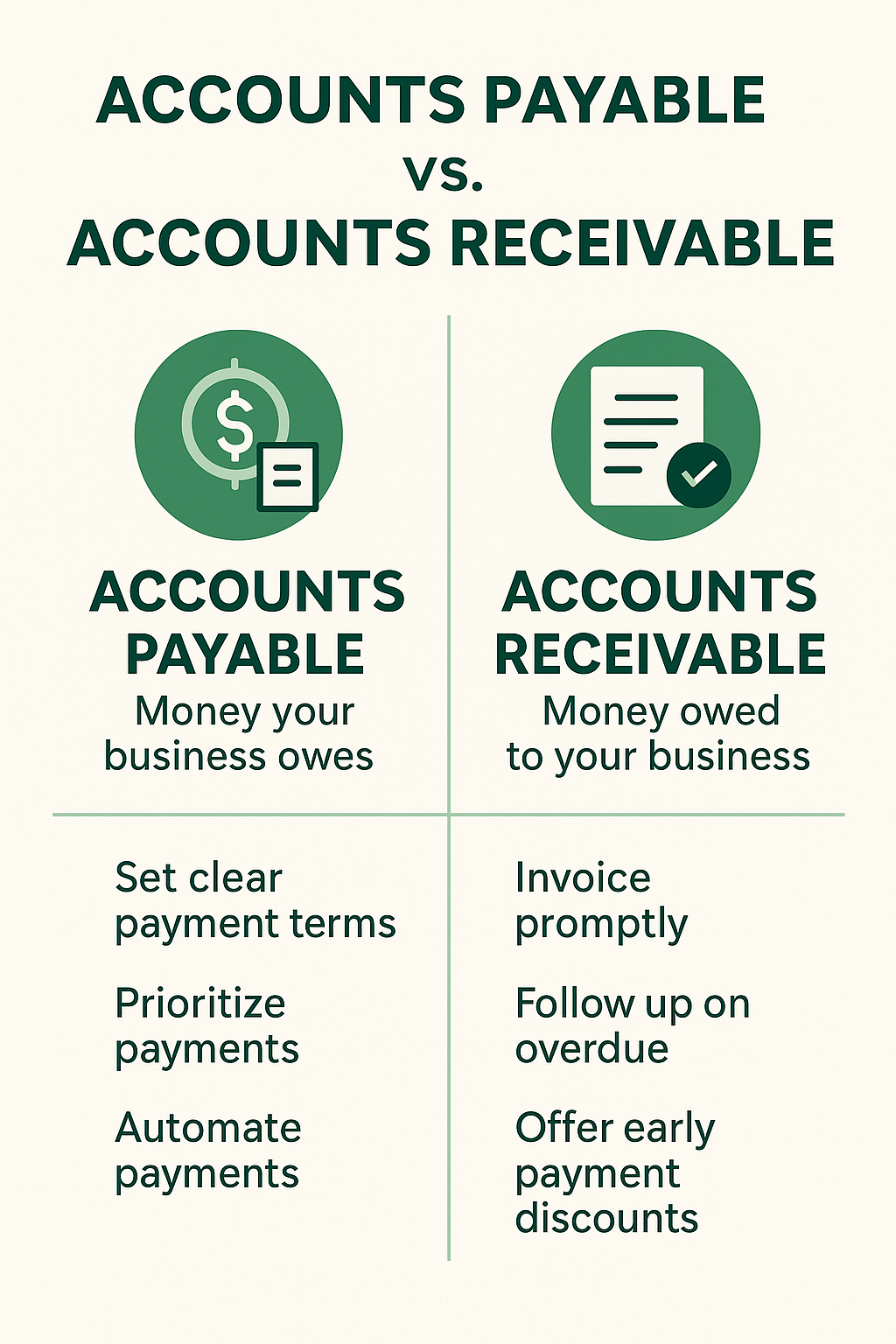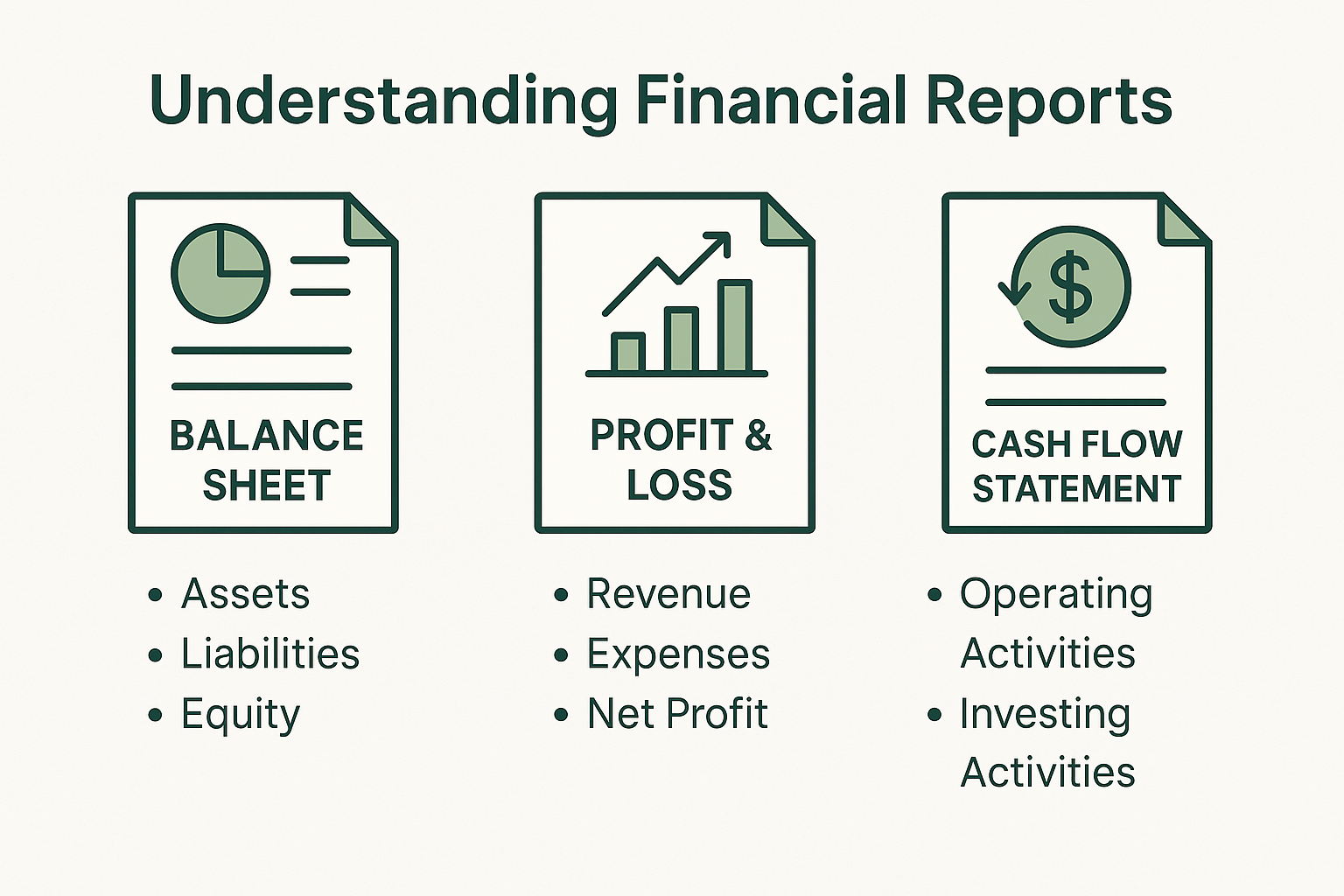Understanding Cash Flow Management for Small Businesses
Understanding Cash Flow Management for Small Businesses

Starting a new business is an exciting venture filled with opportunities and challenges. As an entrepreneur, you’re likely focused on developing your product, building your brand, and attracting customers. However, one of the most critical aspects of a successful startup that often gets overlooked is financial planning. Proper financial planning lays the foundation for long-term success, helping you navigate the uncertainties of the business world and ensuring that your startup is financially healthy from the start. In this blog, we’ll explore why financial planning is essential for startups and how it can help you achieve your business goals.
1. Setting Clear Financial Goals
Financial planning begins with setting clear and realistic financial goals for your startup. These goals might include reaching a certain revenue target, achieving profitability within a specific timeframe, or securing funding from investors. By defining your financial objectives early on, you create a roadmap that guides your business decisions and helps you stay focused on what matters most.
2. Budgeting and Managing Expenses
One of the primary functions of financial planning is to create a budget that outlines your expected income and expenses. For startups, managing expenses is crucial, as cash flow can be tight in the early stages. A well-structured budget helps you allocate resources efficiently, prioritize essential expenditures, and avoid overspending. By tracking your expenses against your budget, you can identify areas where you can cut costs or reallocate funds to more critical areas of your business.
3. Cash Flow Management
Cash flow is the lifeblood of any business, but it’s especially critical for startups. Without proper cash flow management, even a profitable business can struggle to stay afloat. Financial planning involves forecasting your cash flow to ensure that you have enough funds to cover your operating expenses, pay your employees, and invest in growth opportunities. By anticipating cash flow challenges and planning for them, you can avoid running into financial difficulties that could jeopardize your startup’s success.
4. Preparing for Unexpected Expenses
In the unpredictable world of startups, unexpected expenses are almost inevitable. Whether it’s an unplanned repair, a sudden drop in sales, or an economic downturn, having a financial plan in place allows you to prepare for these surprises. Building a financial cushion or reserve fund as part of your financial planning helps you weather these storms without disrupting your operations or derailing your growth.
5. Attracting Investors and Securing Funding
If you’re seeking investment or loans to fund your startup, a solid financial plan is essential. Investors and lenders want to see that you have a clear understanding of your business’s financials and a plan for achieving profitability. A well-prepared financial plan that includes detailed revenue projections, expense forecasts, and growth strategies can instill confidence in potential investors and increase your chances of securing the funding you need.
6. Measuring Performance and Growth
Financial planning isn’t just about setting goals; it’s also about measuring your progress toward those goals. Regularly reviewing your financial plan and comparing your actual performance against your projections allows you to assess how well your startup is doing. If you’re falling short of your targets, you can identify the causes and make adjustments to get back on track. On the other hand, if you’re exceeding expectations, you can explore new opportunities for growth and expansion.
7. Ensuring Long-Term Sustainability
Finally, financial planning is crucial for ensuring the long-term sustainability of your startup. By thinking ahead and planning for future financial needs, you can position your business for continued success. Whether it’s planning for scaling operations, entering new markets, or navigating industry changes, a comprehensive financial plan helps you build a resilient business that can adapt and thrive over time.
Conclusion
Financial planning is not just a task to check off your startup’s to-do list; it’s a vital component of your business’s overall strategy. By setting clear financial goals, managing your budget and cash flow, preparing for unexpected expenses, and measuring your performance, you lay the groundwork for a successful and sustainable business.
For startups, where resources are often limited, and the margin for error is small, having a well-thought-out financial plan can make the difference between thriving and merely surviving. Take the time to develop a robust financial plan, and you’ll be better equipped to navigate the challenges of entrepreneurship and achieve your business dreams.
If you need help creating a financial plan for your startup or managing your business’s finances, our bookkeeping services are here to support you. We understand the unique challenges that startups face and can provide the expertise you need to build a strong financial foundation. Contact us today to learn more about how we can help your startup succeed.



